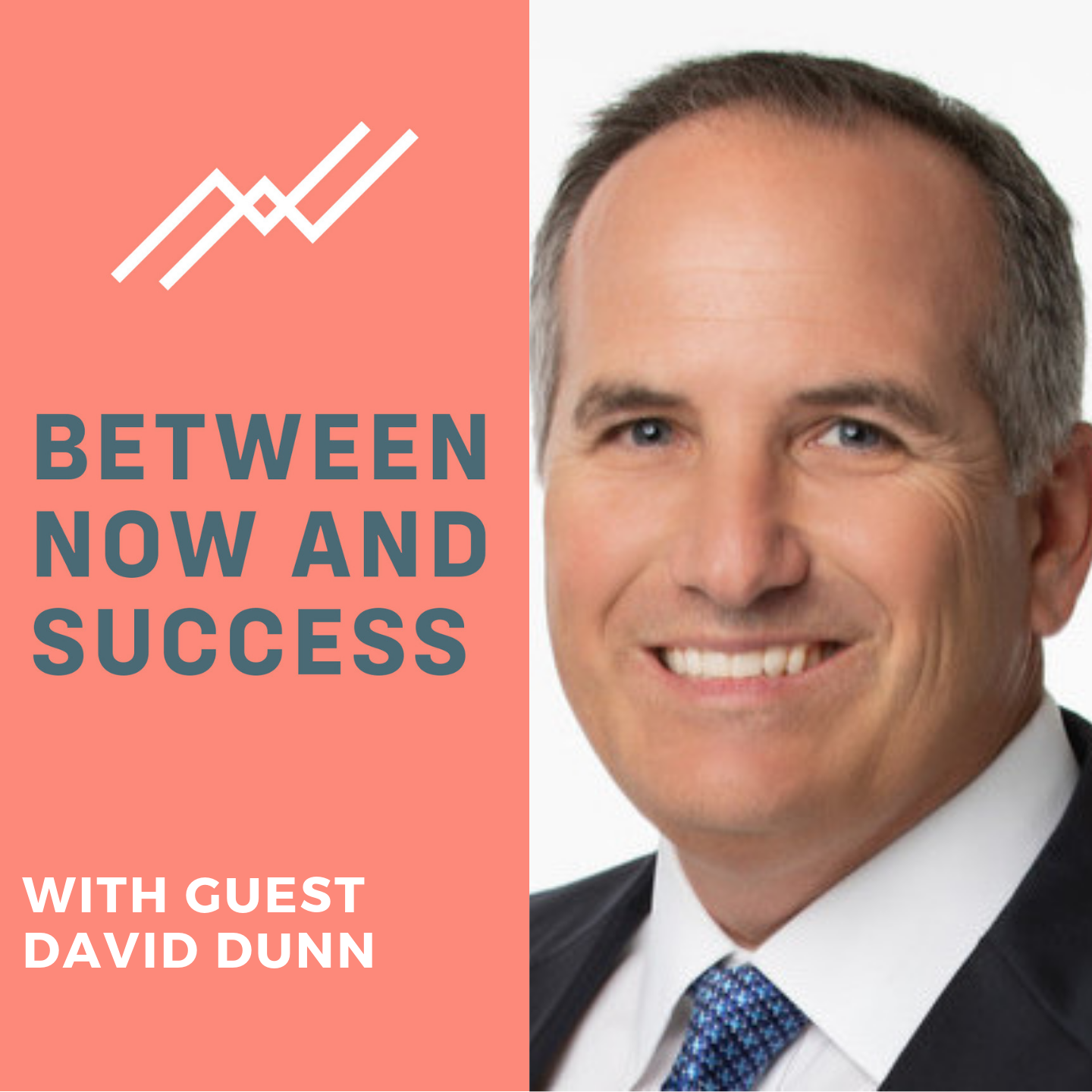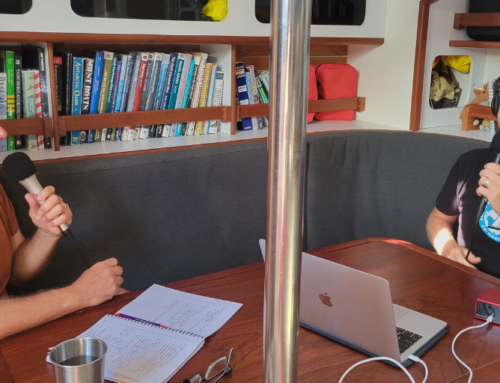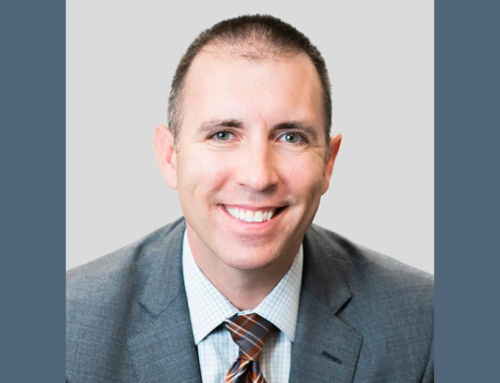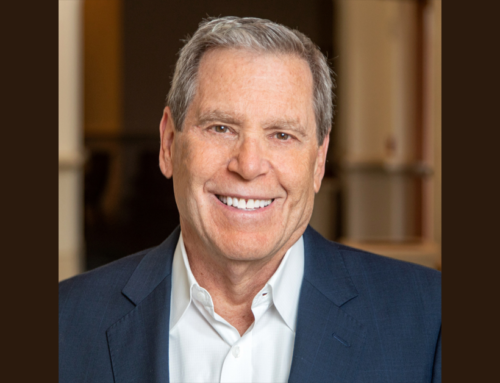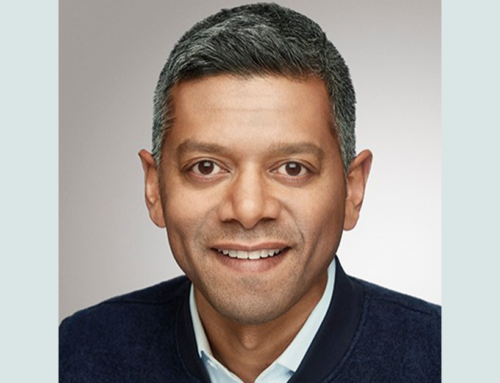“Let me tell you about the very rich. They are different from you and me.” F. Scott Fitzgerald
Imagine for a moment if you could build a highly profitable practice that served a total of just 10 families and individuals. And through your personalized, indispensable service you could create clients for life, and perhaps even for a generation or two.
That’s exactly what David Dunn is doing at Kingsbridge Wealth Management. David describes Kingsbridge as a family office featuring a “full stack financial infrastructure” that provides high-net-worth families and individuals with everything they need to manage their wealth. That means a thorough understanding of how each client thinks about their money, offering specialized services, and incorporating some outside-the-box thinking on asset allocation (hint: it’s definitely NOT modern portfolio theory).
Even if your typical client’s net worth is in the 7-figures, as opposed to 8, 9 or 10 that David works with, you’ll gain a great appreciation of the psychological and service needs of all investors and how to apply that understanding to better meeting your client’s needs.
To read the rest of this article and my key takeaways from David’s conversation, register your email below.
Talking the talk.
David says that an early professional experience had a major impact on his ability to work with people from all walks of life.
“My first job out of college was as a police officer,” he says. “And my job was to communicate to people I dealt with that I was the law. I treated everyone, whether you were a billionaire or whether you were a homeless person, with the same respect. But I was communicating some very definite things. I was good at dealing with very powerful or very successful people.”
As he prepared to become a high-net-worth advisor for Morgan Stanley, David honed his communication and influencing skills in a two-week program that taught him how to identify client personality traits and tailor his message accordingly. “You can have the best idea in the world and the best solution,” David says, “but if you do not communicate it in a way where the listener is open to hearing it, it will fall on deaf ears.”
Certainly, getting through to high-net-worth individuals can be challenging, especially if your client is a hard-working, self-made person used to driving important decisions. In fact, David learned that these folks often exhibit a personality type called “driver” for just that reason.
So how can an advisor take the wheel?
“A driver judges people on their credibility,” David says. “They will generally challenge you and see how you react to the challenge when you present an idea, and then they’re going to make a judgment right there as to your credibility. And so, if you’re going to present to a driver, you need to have bullet points, you need to get to the point quickly and you need to be very confident in what you’re presenting. The driver is hiring me for my knowledge, and then he wants to make a decision on whether I’m credible and whether the strategy makes sense. And then he wants to move on to the next decision.”
On the other hand, an inheritor of wealth or the spouse of a driver might be more of an “analytic.” David explains, “If you go in there guns blazing and try to tell them what you think they should do, they will absolutely resist. What you want to do is say, ‘I have looked at all of these strategies for you and I’ve done the following research and analysis. What I’d like to do is give this to you, have you look it through, and then I’d like to ask your opinion on it at our next meeting and get back to you.’”
David says that one of his greatest strengths is his ability to modulate how he interacts with clients to suit these personality traits. He explains, “There’s a saying with ultra-high-net-worth people: Eagles don’t flock. You’re going to have to deal with them on their terms.”
What your client wants.
David says he envisioned Kingsbridge Wealth Management as a “multi-family office” from day one, with a tight focus on his clients’ needs.
“I asked my clients, ‘What are the services you want me and my team to provide to you?’” he says. “And a lot of the services were different than just investments. Some of them were softer services, a lot more planning, a lot more administration.”
Today, David has a team of six that can help clients with things like entity structures, accounting, taxes, cash flow planning, estate planning, and whatever comes around the bend next. “One of the things that I really enjoy about running a small firm of professionals is that we’re able to turn our boat very quickly and stay on the wind,” he says. “The larger the enterprise, the less maneuverable the ship is.”
The small size of David’s team also allows for a decision-making process that is more personal and more appealing to his clients
“The minute you centralize things and make it so that there is one research group, there’s one planning group, there’s one investment group, I think you lose the ability to turn the ship,” David says. “The real skill is to understand the client well enough to bring them solutions that work for them. Ultra-high-net-worth people are neither rational nor optimal. They will do certain things based on their biases and experience. And your job is to figure out what is the best solution for them, not some ‘optimal’ solution coming out of some planning group who doesn’t know who the client is.”
Shockingly, from a technology standpoint, what David’s clients want the most is Kingsbridge’s phone number.
“99% of our technology is internal,” he says. “The only reason I’m able to run our firm of six people and do everything we do is because if we find technology that will help us do it, we will adopt that technology. We are nimble and we’re quick and we’re always looking for a better way to execute on our business. We have all the client-facing technology you could ever want. But in the end, clients will log in and they’ll just pick up the phone and call us.”
We get so enamored with technology and FOMO that we forget that clients hire us because they want us to make their financial life easier. We can have the fanciest client-facing technology but if utilizing that technology means more work for the client, they’ll pass and simply pickup the phone and call or text you.
I was amused when I read recently that Merrill Lynch docked its advisor’s pay if their clients didn’t meet a certain frequency of logging in to their accounts. That’s ridiculous. Merrill might think it’s more efficient for the firm if clients got their questions answered via a FAQ but if it hurts client satisfaction, Merrill will lose in the long run to service-oriented advisors.
Funding a lifestyle.
At a recent conference, David learned a formula for explaining relationships: Trust equals credibility plus reliability plus likeability, divided by self-interest.
David’s team has really taken that formula to heart from an advisor’s perspective. They’ve built trust, credibility, and likeability into strong relationships with their client families that could span generations. And they’ve created a conflict-minimizing fee structure that’s “investment and asset class agnostic,” assuring clients that their portfolios are always being managed in their best interests.
“I’ve been through everything to do with capital asset pricing models,” David says. “I completely disagree with a model that requires me to make guesses on future returns of asset classes and correlations of asset classes because I just know that my guesses are wrong. We build a model that’s based on funding a lifestyle. We look at what is the best allocation of those assets to support that spending and to support other goals you have. So we really back into the equation. And that’s part of what’s unique about our approach. We use different structures where you start with personal use assets, you go to illiquid assets like private operating companies and alternative investments, and then you go to more liquid assets. But they all funnel towards lifestyle.”
Really, isn’t all of financial advice funneling towards lifestyle?
The millennial opening an ESG account that makes him feel better about his money. The CEO investing in private equity or venture capital that could fund the next tech breakthrough. The retired couple getting ready to crack open their nest egg and buy that beachfront condo.
Most money decisions are lifestyle decisions. They’re about making tradeoffs between enjoying things today or saving for the future. And investors across the wealth spectrum will increasingly gravitate towards advisors they can trust to fuel those lifestyle goals into the next generation.
Action Steps
1. To better understand your client’s psychological profile, listen to my podcast with Brad Klontz.
2. Think about your asset allocation strategy. Should you add a “lifestyle” allocation component?
3. Do a technology audit and see how much of your client-facing technology is making your client’s life MORE difficult. If the main reason for a particular piece of client-facing technology is to make your life more efficient, then you’ve got it backwards.
Resources
– Kingsbridge Wealth Management Visit David Dunn and his team online.
– “Zero to One” by Peter Thiel David Dunn says this book taught him, “going from zero to one, where you create something that didn’t exist before, is truly a great accomplishment and something worth committing capital to.”
– Values Clarification Toolkit Click here to download this FREE tool and start living your values.

